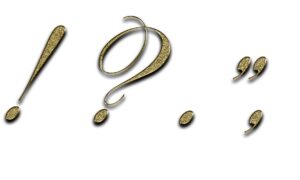 Yes. It’s time for writers to retire (cough) a few old favorite but now worn-out words, methods, habits, phrases, and punctuation marks.
Yes. It’s time for writers to retire (cough) a few old favorite but now worn-out words, methods, habits, phrases, and punctuation marks.
“But my high school English teacher told me…”
Is your high school teacher in publishing? Makes a difference.
“But I always heard…”
What was true when you heard it may not be true now. The person who said it may not have known the intricacies of writing for publication versus writing for an online entity, a magazine, or a term paper.
“But, is it really wrong if I…”
Not necessarily wrong. But not as strong.
Ready to dive into the You Can Retire That list?
Time for Writers to Retire Outdated Phrasing
Throw a party if you’d like for these phrases to retire, but let them prop up a coffee table leg rather than your sentence. In the previous sentence, “if you’d like” could be deleted without injuring the meaning. 🙂
- “In spite of”
- “Sort of like”
- “Kind of”
- “So that”
- “In order to”
- “In place of”
- “Instead of”
- “Because of”
- “In other words”
- “Find yourself in need of”
Alternates: despite, like, (just delete “kind of”), so, to, rather than, instead (or reword), because, (just use the other words without “in other words”), need
Weaker: Because of the rain that was falling, she popped open her umbrella in order to sort of keep her hair dry. In other words, she didn’t want to ruin what she’d just spent money on at the salon.
Stronger: She popped open her umbrella. Rain would not destroy her stylist’s hard work. No refunds for “act of God” at the Cut ‘n’ Curl.
(Note the stronger version is reworded to show rather than tell and to reveal more about the character.)
Time to Retire Cumbersome, Antiquated, or Overused Words
- While–as in, “While most of us enjoy ice cream…”
- However–stiff, formal, reserved for more academic works; important in some instances, so retire it but keep it on speed dial for when you do need it
- Therefore–see the problems related to “However”
- For–as in, “For she had always loved ice cream.” If you’re writing historical fiction, the word for might work. But not in contemporary fiction or most contemporary nonfiction. It sounds affected.
- That–As you edit, watch for how many instances of that you can remove without altering the meaning of the sentence. Prepare to be amazed!
- So–when used as a space-holder or breath. “So, what do you think, Stanley?” “So, we can conclude…”
- Well, Oh, You see–Dialogue will flow and communicate more effectively without the unnecessary use of these limp words.
- And–when used in excess. We need the word. But we need it far less than imagined. We use and too often as tape to patch two complete sentences together rather than letting each stand on its own merit. We start too many sentences with And because that’s how our minds rambled it. Ask, “Do I need it here?”
- Just–If you discover the word just showing up more than once in a chapter, the rest can likely be retired.
Retire Fad or Pet Punctuation
- Single quotes–Necessary when quoting within another quote or within a line of dialogue. Not appropriate whenever you ‘feel’ like it. Great example. Single quotes not used appropriately give the illusion it was just too much work to hold down the Shift key. <insert wide grin> That’s for American English (and most of Canada, Australia, and New Zealand). Did you know that the rules for single and double quotes are reversed in British English? If you’re writing for a US publisher, or for an American audience primarily, take note of how infrequently single quotes should appear in your manuscript. Don’t be fooled by social media’s misuse.
- Double or triple punctuation–?! or !!! Have you seen their use in books you’ve read? Yes. Save ink. One is enough.

- Parentheses–In modern writing, parentheses have fallen out of favor. It’s not a hard and fast rule. But if you read widely, you’ll likely see the emdash used more often for parenthetical thoughts. Example: The way he looked at her–kindly for once–told her something had changed.
- Excessive use of exclamation points rather than stronger verbs or potent word pictures and action beats–
- Ellipses–Ah, the dreaded ellipsis…how we love them…those three little dots. Like any overused punctuation, ellipses start to draw attention to themselves on the page rather than letting the narrative or text content have center stage. Most editors will either eliminate or ask you to cut down on your use of ellipses.
Say Goodbye to Distance Wording
Retire wording you thought might draw the reader closer, but created distance. What you thought made the writing personal, conversational, might keep the reader from the real meat of the sentence.
- I think that–This is a filler phrase. Say what you want to say. Weaker: I think that we all have times when we feel alone in a crowd. Stronger: We all have times when we feel alone in a crowd.
- I believe–Same. The reader doesn’t need to be reminded that an author is writing this. They know. Rather than “I believe it’s time to face the truth about the difference between procrastination and laziness,” simply say, “It’s time to face the truth about the difference…” (Proper use of ellipses, by the way. Thought trailing off. End of sentence truncated.) The addition of “I believe” directs the reader’s attention to the author rather than to the truth. “Oh, this author believes it’s time.” It’s especially important to avoid this distancing wording if it’s a well known fact. “I believe you’ll find many references in the Bible to God’s desire to comfort us.” Your believing it doesn’t make this truth stronger. It directs attention to you, and it could make the reader question if the “I believe” means the author is trusting that’s true rather than knowing. It can also make the reader feel the author is condescending to the reader. “Let me tell you what you don’t know but I know it.”
- You must/You should/You have to–Finger-pointing words like these make the rest of the words in the sentence disappear. The reader is locked on the author’s commanding tone. Even grammar checkers will flag “You/we have to” in favor of “You/we need to.”

- I want to say–Then say it. No need to tell us you want to. Say it.
- I want you to–Tricky one here. It seems like it’s drawing the reader close. But it changes the “we’re in this together/I’m walking alongside you” to “I’m the teacher. You’re the student. Do as I say.” Distancing: I want you to close your eyes for a moment and consider the last time you felt truly understood. Stronger: Close your eyes for a moment. Consider the last time you felt truly understood. Isn’t it interesting the the stronger way feels more invitational?
Retire Creative Formatting in Proposals
Did you know that block formatting for sample chapters is not an editor’s preference? Block formatting has long been the domain of online writing–blogs like this one, websites, longer social media posts. That’s because readers who access the material on a phone can be frustrated by typical paragraph indentation. If my screen is three inches wide and the author indents the paragraph by the standard half inch, the line of text shrinks noticeably. You will sometimes see block text in a published book. But we’re addressing proposals now.
Also, full-justified is a nightmare for editors, even your freelance editor or agent. It’s harder to note where an extra space is added and inhibits readability, since the eye is reading lines of print that are not evenly spaced. For your proposal’s sample chapters and the manuscript you turn in, set your default to left-justified, double-spaced, and set the default to indent each new paragraph by 0.5 inch with no additional spacing between paragraphs other than the already existing double-space.
Use Your Writer Genius to Retire Filler or Way-Too-Easy-to-Overdo Words
- Something
- Someone
- Some
- Thing
- This
- Literally
- Actually
- Thankfully
- Hopefully
- Very
Any number of the above points could be argued. Next year, we could add more or bring some out of retirement. Will your career tank if you use an excess of ellipses or realize you defaulted to the word something four times in your brief description? No. The real question is, “Do I want my writing to communicate as clearly, efficiently, and effectively as it can?” If the answer is yes, consider your work in progress with these tips in mind.

 How to Avoid the Historical Fiction Wall-Banger
How to Avoid the Historical Fiction Wall-Banger
Thank you, Cynthia, for these reminders. I found myself guilty of more than a few. It’s too easy to fall into those lazy writing traps.
On any given day, any given writer.
Thanks for the tips. I’m always looking for ways to make my writing crisper.
Crisp is nice with fries and books!
Excellent post! However, there is one place where I think distancing is useful: internet comments. It’s hard to express tone with written comments. Sometimes people read the words as an attack when that was far from one’s intention. Phrases like “I think,” “I believe,” “it looks like,” “it seems,” etc., soften the commentary. Yes, it puts the focus on the writer, which in this instance isn’t bad. The OP is less likely to take my comment as a personal attack when I acknowledge the comment is just my opinion, but I’ve still expressed my point.
Good point!
This English teacher IS in publishing but these are good reminders and timely as I do edits in about a week.
Thanks, Janet!
Practical advice! I’ll put it to good use.
Great!
You rang my bell! I’m an editor, both freelance and for publishers, and have a difficult time convincing writers that some words/phrases should be discarded like worn out shoes.
Great metaphor!
Ah…I do love my ellipses! These are all great reminders, thank you Cynthia! Yes, the stronger form of the sentence speaks so clearly. I love the examples you gave with both ways so we can really see for ourselves. I just cut a “that” out of the previous sentence, just for you!
Yes to removing THAT! It isn’t missed!
They say it would behoove me
to really try to understand
that it’s no longer groovy
to say that “I dig, it, man!”
And it’s proclaimed peculiar,
my old-school surfing slang,
for nothing now is tubular,
and no ten should I hang,
I wish that time would dung lai;
it’s all so dien cai dau,
and that is the reason why
I’m gonna di di mau
back to when xin loi was real,
and nuoc mam really made the meal.
You can still use those words, Andrew. You’d just be writing “historical” works. You’re right that nuoc mam can make the meal. It’s essentially the same as garum, the beloved condiment of the Romans that was made from heavily salted fish parts sealed in clay vessels to liquify. They used it on almost everything. Sounds horrible, but as you know, it really is tasty…if you don’t think about what it is. The characters in my books eat it all the time.
Fun!
A helpful post, Cynthia. I wrote scientific journal articles for more than thirty years, so using “however” and following formal English rules was like breathing. Then I started writing fiction, and I had to downgrade the quality of grammar I used to make it reader-friendly. It took me many months before I could start a sentence with “but” instead of “however” with a comma without cringing. I still sometimes shudder when using “who” where “whom” is the correct case. But writers who want to sell fiction have to adapt.
Readers appreciate it!
Dear Cynthia, thank you for this helpful list of tips I plan on referring to. A. Lot.
These wise words of yours sum up why we need to heed this list: “Not necessarily wrong. But not as strong.”
Strong writing blesses readers. It also strengthens the possibility of a project being published in the first place.
Blessings,
Wendy Mac
Thank you, Wendy. I think when some writers look at tips like this, they resist, feeling as if the advice is “one more thing” they need to correct. I’m grateful you saw the “not necessarily wrong, but not as strong” tone of this post!
Oh goodness, you caught a couple of my weasel words (And and That). When I went through my last manuscript, I deleted a lot of both of these when I did a manuscript-wide search.
This is very helpful. I published first in nursing magazines and journals and I expect my writing will benefit from these.
What often works for writers is to work on one weak word at a time. Go through a scene or a chapter looking for overuse of “that” or “and.” Then go through the scene or chapter watching for “…of” phrases that can be reworded.
We’re always asking ourselves, “Is that the BEST way to say this?”
Hey Cynthia, Would you say these weak words and phrases are more for nonfiction or do they apply to fiction? Are there times they would be acceptable in dialogue in fiction?
Absolutely for both fiction and nonfiction. A weak word might be acceptable in dialogue, but it’s a fascinating experiment to try writing dialogue without the weak words and still sounding like the character. Sometimes, we understand the character even BETTER without the weak words.
Example:
Jerry twirled his goggles in his hands and said, “Marilee, I was swimming (weak way of expressing it) in a furious way (weak expression) to get here in time to tell you that I’ve been thinking about the two of us maybe starting a new life together if, in spite of my failures, you’d give some thought to the idea of it.”
Stronger: Jerry twirled his goggles in his hands and said, “Marilee, I swam hard to get here. That wild splashing wasn’t bad form. It was desperation. You know the truth about me. You also know my heart. Despite who I once was, would you save this drowning man and marry me?”
If you have an example you’d like to submit about how weak words might be useful in fiction, especially in dialogue, I’d be happy to take a look.
This is a part of a conversation in my WIP.
“Sure, go ahead and hide out. Wouldn’t be the first time.”
“That would suit you just fine, would it not?”
“Why are you here, Jackie?”
The two characters are in the middle of a heated discussion. Thoughts?
Susan Sage said: This is a part of a conversation in my WIP.
“Sure, go ahead and hide out. Wouldn’t be the first time.”
“That would suit you just fine, would it not?”
“Why are you here, Jackie?”
The two characters are in the middle of a heated discussion. Thoughts?
You probably don’t need the word Sure. You may not need the word “out” either. 🙂
“That” is necessary how it’s used here. We’re not trying to get rid of “that” altogether, but eliminating where it’s not needed. If you’d said “That is something that would suit you just fine, wouldn’t it?” I would advise getting rid of something, the second that, and would.
Because the character’s name is Jackie, I’m assuming this isn’t historical. If it’s contemporary, “would it not” will sound a little stiff and formal. Try this simple adjustment:
“Go ahead and hide. Wouldn’t be the first time.”
“That would suit you just fine, wouldn’t it?”
“Why are you here, Jackie?”
Very little changed. Do we still know what we need to about the characters? Yes.
This is because conventional paragraph indentation might annoy readers who view the information on a phone. If the author indents the paragraph by the customary half inch and my screen is three inches wide, the line of text shrinks substantially. In a published book, you may come across block text.
But if we’re talking about proposals sent to agents or editors, then the sample chapters (if not the whole proposal) is unlikely to be read on a phone screen. That’s why most editors and agents prefer the sample chapters written in the indented style rather than block style.
Cynthia,
Thank you for this post. I need all the editing help I can get, especially with my pet phrases and words. You’ve covered several of them that I will retire today.